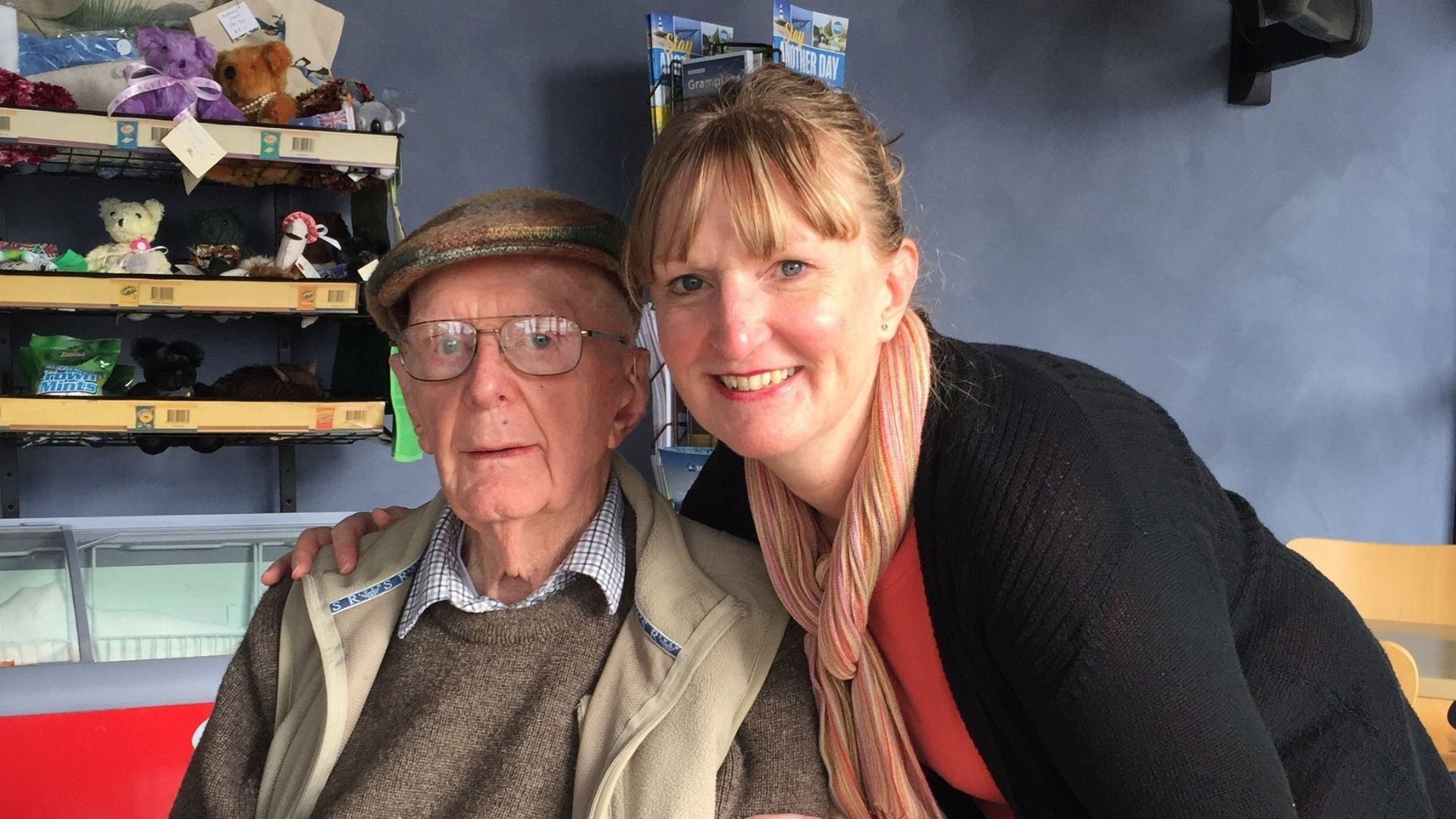All of us experience ups and downs in life - there are times of joy and celebration, as well as life events or periods that are challenging, and some moments will contain a bit of both.
In these tough times, it’s the support of family, friends and colleagues that can help us through.
That’s why we’re calling on Australians to ask R U OK? when life happens.
RELATIONSHIP BREAKDOWNS
When a meaningful relationship ends, whether romantic, a close friendship, or a family bond, the loss can be deeply personal and painful.
If you know someone going through this, you don’t need the perfect words to help. Simply checking in, listening without judgment, and showing you care can make a real difference.
“People often forget their strengths after a breakup,” said Relationships Australia NSW counsellor Sandra Martel-Acworth.
“They may feel unsure of themselves, lose confidence, and forget what they bring to relationships and friendships. Look for moments to remind them of what you truly value about them as a friend.”
Simple gestures like going for a walk, offering help with daily tasks, or just being present and listening can bring comfort after the loss of a relationship.
If you’re concerned about their wellbeing or safety, it’s okay to gently encourage them to seek professional support. Some conversations are simply too big for friends or family to handle alone.
Remember: breakups and relationship changes are a common part of life. Your support, empathy, and continued presence might be the lifeline someone needs.
GRIEF AND LOSS
All of us will experience grief and/or loss at some time in our lives. It affects everyone differently and can leave people feeling overwhelmed, isolated, and unsure of how to cope.
Some people may hesitate to talk about grief out of fear they’ll say the wrong thing. You don’t need the perfect words or solutions. Checking in regularly, being there to listen and showing you care can make a big difference.
R U OK? has gathered personal stories from Australians who’ve faced grief and loss, along with practical tips to help support someone during emotionally tough times.
When Lach's wife died suddenly in her 30s from sepsis, he was left to raise their two toddlers alone. The days that followed were filled with shock, sleepless nights, and the overwhelming feeling of loss and grief.
But amid the sadness and chaos, it was support from family and friends that made a difference.
"What’s helped me the most is the people who continue to check in and let us know we’re not alone," he said.
Grief looks different for everyone, but no one should
have to do it alone
R U OK? Community Ambassadors Tracey and Carli share their experiences of grief and how the support of those around them helped them through.
Tips to help support those who are experiencing
grief and loss
If you're unsure how you can support someone, we've got you covered. Here are some signs to look out for and tips on what you can say and do to help them.
BECOMING A PARENT
The arrival of a child is a joyful time, but it can also deeply impact a parent’s emotional wellbeing. Preparing for the unfamiliar, adjusting to new routines and sleepless nights can be difficult both emotionally and physically.
Common struggles include increased feelings of isolation, sleep deprivation, financial pressure, changes in relationships, and a shift in priorities, all of which add to the stress of adjusting to a new life role. Around 100,000 families in Australia are impacted by perinatal anxiety and depression each year.
Individuals and experts have shared their experiences with us to remind everyone that it takes a community to support families through the early stages of parenthood.
Ashleigh, a nurse from the NSW south coast, experienced perinatal anxiety and depression shortly after the birth of her daughter.
"I got through it with a really good support network. I had an incredible group of friends who validated my thoughts and feelings," the R U OK? Community Ambassador said.
FINANCIAL STRESS
Almost half of Australians are reporting cost-of-living and personal debt distress, which can negatively impact wellbeing, increase stress and cause anxiety.
It’s normal to feel awkward starting conversations when it comes to money, however if you show genuine interest, concern and make space to listen, supportive conversations do make a positive difference when the people we care about are navigating tough times
Individuals and experts have shared their experiences and advice to help build confidence and get more meaningful conversations started.
At 17, Ming found herself homeless. Now a small business owner, she opens up about how financial pressures have impacted her and how the support of others has helped her navigate those difficult times.
"A lot of us really struggle to have conversations about finances, I think we have an enormous amount of stigma around it. But these conversations are so vital as a lot of people are suffering in silence," the R U OK? Community Ambassador said.
How to support someone experiencing financial stress
Money challenges can happen to anyone, and most of us will experience financial pressure at some point in our lives. Here's how you can lend your support to someone.
RETIREMENT
This year, more than 100,000 Australians are expected to retire.
Retirement can be an exciting time, much looked forward to after years of hard work. But for some, closing the door on working life can be challenging, bringing financial stress, social isolation or the loss of identity and routine.
Retirees and experts share their tips on meaningfully supporting the people you care about through this transitional phase.
Geoff retired as a primary school Principal in 2023 and has many mates at a similar phase of life.
He has kept up a busy routine with several volunteering commitments, but his favourite slot in his weekly routine is a boxing group that he has run on Wednesday nights for over 30 years.
"I think blokes find it quite difficult to share feelings, I do myself. It's a lot easier if you give them something to do at the same time," Geoff said.
The side of retirement we need to speak about more
Five retirees share their experiences of life since stopping work and how connection and the support of others has helped them adjust.
Understanding life after work: Tips for supporting retirees
If you're unsure how you can support someone, we've got you covered. Here are some signs to look out for and tips on what you can say and do to help them.
HOW TO ASK R U OK? WHEN LIFE HAPPENS

ASK R U OK?
Choose a moment where you have time to listen and where there’s relative privacy so that they can share how they’re feeling.
You don’t have to use the words, ‘are you OK?’ – you can start the conversation in any way that feels right to you and your relationship with that person.
You could help them open up by specifically mentioning what they’re going through, with a question such as ‘How are you feeling about…?’.
If they respond by saying that they are doing well, they will still appreciate that you asked. It’s beneficial to check in even if someone isn’t struggling at that time and it lets them know that they can come to you in the future if they need.

LISTEN
Listen carefully to what they say. Don’t judge their experiences or reactions but acknowledge their feelings and what they’re going through.
It’s important to remember that much of what people go through in life will be out of your control. You don’t need to ‘solve’ or ‘fix’ what they’re going through, and often you can’t. Just listening and helping them feel heard can go a long way.

ENCOURAGE ACTION
Help them explore some actions they might be able to take to manage their situation. You could ask, ‘what has helped you in the past?’, or, ‘how would you like me to support you?’.
If they are really struggling, encourage them to access professional support. You could offer to help them book an appointment with their GP or research some helplines.
You can find a list of free 24/7 national support services at the link below.

CHECK IN
After the conversation, set yourself a reminder to check back in with them. Following up on the initial conversation shows them that you heard them and that you care.
You could say, ‘I've been thinking of you and wanted to know how you've been going since we last chatted’. You might need to repeat the above steps again and continue the conversation.

The 'When life happens, ask R U OK?' series is proudly supported by our Conversation Partner, ING Australia .























